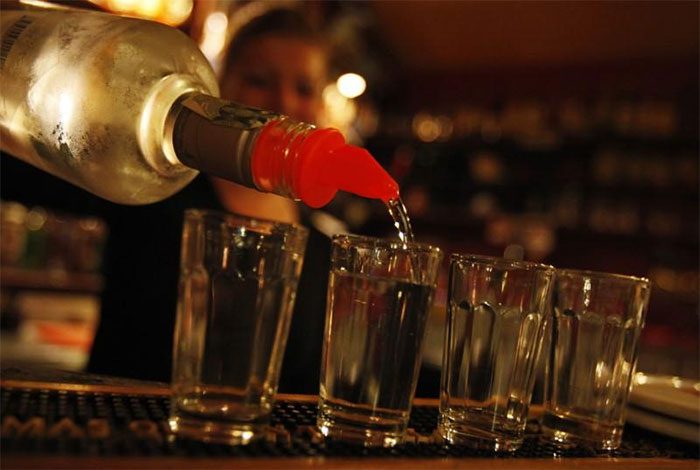Evidence of the impact of alcohol on brain health at all ages, from fetal development to the end of life, is becoming increasingly clear.
Most of us have likely seen headlines such as “6 reasons a small glass of wine a day may be good for you” or “Drinking alcohol with meals may help reduce the risk of Type 2 diabetes.” However, alongside these purpose-driven studies and advertisements promoting the occasional benefits of drinking, there are also warnings that even moderate drinking can be dangerous – for example, “Drinking alcohol is not good for your heart.” So what about the brain? What happens to the brain when you drink alcohol, whether it’s a glass of wine at dinner, a few beers after work, or cocktails on vacation?
According to the U.S. Department of Health and Human Services (HHS), moderate drinking is defined as one drink or less per day for women and two drinks or less for men. The Centers for Disease Control and Prevention (CDC) define women who consume 8 or more drinks per week as binge drinkers, while for men, the number is 15 or more. The CDC also defines binge drinking as consuming 4 or more alcoholic drinks at the same time for women or 5 or more for men.
However, a study from the University of Pennsylvania published in the journal Nature indicates that there is no safe level of alcohol consumption for human brain health. Specifically, the research shows that the brain ages rapidly if you drink just one glass of alcohol per day.

Bar in the Czech Republic. (Image source: Reuters).
Scientific Evidence
The byproduct of alcohol metabolism in the body is acetaldehyde, the main “culprit” causing intoxication, while also increasing neuroinflammation (harmful brain inflammation), oxidative stress, and excitotoxicity (nerve damage due to overstimulation). The harms associated with alcohol consumption correlate with frequency, quantity, and duration.
There is evidence of alcohol’s harm even before birth. According to a study published in The Lancet Global Health from Ireland – a country among the “Top 11” highest alcohol-consuming countries in the world – over 60% of women consume alcohol during pregnancy, which is six times the global average (one in ten women drinks alcohol). Kimberley Wilson, a psychologist and creator of a health science podcast, explains: “Ethanol easily crosses the placenta into the fetal bloodstream at a blood alcohol concentration equivalent to that of the mother. However, the fetal liver is not developed enough to process alcohol effectively, meaning alcohol remains in the body for an extended period, increasing the risk of damaging developing tissues.”
From Birth: Birth Defects
Alcohol is a teratogen that can cause birth defects in a developing fetus. Therefore, it is not surprising that Ireland has the highest rate of fetal alcohol spectrum disorders (FASD), with 6,000 cases each year. FASD includes physical and neurological disorders in children born to mothers who drank during pregnancy, manifesting in behavioral issues, emotional regulation difficulties, impulsive control problems, learning challenges, and cognitive impairments.
Wilson notes that people often only consider the impact of alcohol on weight or uncontrollable behavior. However, what most people do not think about is the potential long-term effects of alcohol consumption on brain health.”
A recent survey in 2022 found that over one-third (about 37%) of Irish adults aged 15 and older drink alcohol at least once a week. Data shows that rates of binge drinking among teenagers and young adults are concerning, especially since the brain is still developing during this stage of life.
Alcohol can inhibit neurogenesis – the process of forming new neurons in the brain, which can lead to long-term changes in the structure and function of adolescents’ brains.
In terms of mental health, intoxication not only increases the risk of anxiety but is estimated that around 20-27% of those with anxiety turn to alcohol for relief and confidence.
The relationship between alcohol consumption and depression has been established. Drinking alcohol can exacerbate feelings of depression, and people often turn to alcohol to temporarily alleviate depressive symptoms or numb emotions.
Into Adulthood and Old Age: Memory Decline
According to Dr. Dave Rabin, a neurologist and psychiatrist, the first thing to note is that long-term alcohol consumption (especially hard liquor) significantly negatively affects memory. He points out Wernicke-Korsakoff syndrome, “a very, very serious syndrome that is difficult to recover from, as alcohol alters the structure of brain cells, inhibits brain function, and over time, regular alcohol consumption leads to degeneration and brain shrinkage – which is crucial for life and memory formation.” (Wernicke-Korsakoff syndrome is a memory disorder caused by thiamine or vitamin B1 deficiency in the brain. Alcohol impedes thiamine absorption and hinders the enzyme that converts it into a useful form in the body).
Excessive drinking in middle age is one of 12 risk factors for memory decline (according to a 2018 Lancet commission report) – one-third of which are related to diet or nutrition (diabetes, hypertension, obesity, and alcohol). High alcohol intake is a major modifiable risk factor that can prevent early-onset dementia, which occurs before age 65. In a study of 57,000 cases of young-onset memory decline, 39% were identified as alcohol-related brain damage. Men who drink more than 2.5 drinks per day show signs of cognitive decline up to 6 years earlier than those who do not drink or have quit drinking.
Dr. Rabin explains: “When you drink a glass of alcohol, it activates GABA receptors/neurotransmitters in the frontal brain, causing the brain to respond sluggishly. When we inhibit the activity of the frontal lobe, we weaken two very important factors for decision-making and emotional regulation.” This is part of the reason that one or two alcoholic drinks can make people feel more relaxed, especially those with anxiety, since alcohol activates GABA receptors, leading to “impaired judgment, decision-making, and mature thinking.” Dr. Rabin adds: “For some people, alcohol can actually be helpful in social situations, although it is not necessarily the best way to cope with anxiety, as it again impairs cognitive and judgment abilities.” This can lead individuals to engage in risky behaviors such as unsafe sex or drunk driving. And if someone has an underlying mental health disorder, such as depression or bipolar disorder, alcohol can exacerbate symptoms.
Additionally, brain damage (and symptoms like brain fog) can also result from cirrhosis, another common complication of long-term alcohol consumption.
In summary, while one or two glasses of alcohol may help us feel more comfortable in social settings or relax after a long day at work, it is important to be aware of the potential consequences of excessive and prolonged drinking. If you choose to drink, please do so responsibly.


















































